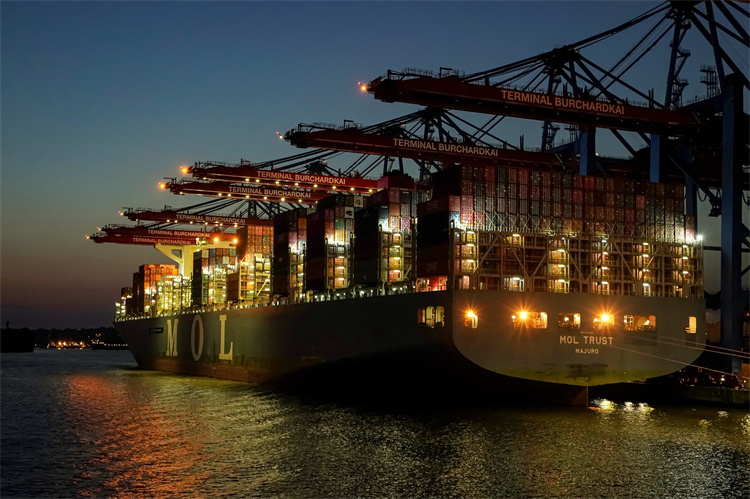Smart Supply Chains: Future Trends and Innovations

Smart supply chains play a crucial role in today's global economy. Rapid technological advancements, such as AI-powered simulations and IoT, significantly impact logistics and procurement. Businesses must stay ahead of trends and innovations to remain competitive. Gartner predicts that half of supply chain organizations will invest in AI and advanced analytics capabilities by 2025. Generative AI has the potential to revolutionize supply chain management, logistics, and procurement. A smart supply chain involves using emerging technologies like big data, IoT, blockchain, and RPA to streamline operations.
Emerging Technologies in Smart Supply Chains

Internet of Things (IoT)
Real-time tracking and monitoring
Smart supply chain systems leverage the Internet of Things (IoT) for real-time tracking and monitoring. IoT devices provide continuous data on the location and condition of goods. This data enhances visibility across the entire supply chain. Companies can make informed decisions quickly. Real-time tracking reduces delays and improves customer satisfaction.
Predictive maintenance
IoT also plays a crucial role in predictive maintenance. Sensors monitor equipment health and performance. Data collected helps predict potential failures before they occur. This proactive approach minimizes downtime and extends the lifespan of machinery. Predictive maintenance ensures smooth operations within the smart supply chain.
Artificial Intelligence (AI) and Machine Learning (ML)
Demand forecasting
Artificial Intelligence (AI) and Machine Learning (ML) revolutionize demand forecasting in smart supply chains. AI algorithms analyze historical sales data and market trends. This analysis provides accurate demand predictions. Businesses can optimize inventory levels and reduce waste. Improved demand forecasting leads to better resource allocation and cost savings.
Inventory optimization
AI and ML also enhance inventory optimization. These technologies analyze various factors such as sales patterns, lead times, and supplier performance. The analysis helps maintain optimal inventory levels. Businesses avoid overstocking and stockouts. Efficient inventory management boosts overall supply chain efficiency.
Trends Shaping the Future of Supply Chains
Sustainability and Green Logistics
Eco-friendly transportation methods
Eco-friendly transportation methods play a pivotal role in a smart supply chain. Companies adopt electric vehicles and hybrid trucks to reduce carbon emissions. Rail and maritime transport options receive preference due to their lower environmental impact. Renewable energy sources power logistics hubs and warehouses. These measures contribute to a more sustainable supply chain ecosystem.
Waste reduction strategies
Waste reduction strategies enhance the sustainability of a smart supply chain. Companies implement recycling programs and use biodegradable packaging materials. Digital platforms track waste generation and identify reduction opportunities. Efficient inventory management minimizes excess stock and reduces waste. These practices lead to significant cost savings and environmental benefits.
Resilience and Risk Management
Diversification of suppliers
Diversification of suppliers strengthens the resilience of a smart supply chain. Companies source materials from multiple suppliers to mitigate risks. Geographic diversification reduces dependency on a single region. This approach ensures continuous supply even during disruptions. Supplier diversification enhances overall supply chain stability.
Advanced risk assessment tools
Advanced risk assessment tools play a crucial role in managing supply chain risks. Companies use AI-powered analytics to predict potential disruptions. Real-time data monitoring identifies vulnerabilities in the supply chain. Proactive risk management strategies minimize downtime and financial losses. These tools ensure smooth operations within a smart supply chain.
Customization and Personalization
Tailored supply chain solutions
Tailored supply chain solutions cater to specific business needs. Companies customize logistics processes to meet unique requirements. Flexible supply chain models adapt to changing market conditions. Personalized solutions enhance efficiency and customer satisfaction. A smart supply chain leverages technology to provide tailored services.
Customer-centric approaches
Customer-centric approaches drive innovation in a smart supply chain. Companies prioritize customer needs and preferences in their operations. Real-time data analytics provide insights into consumer behavior. Personalized communication channels improve customer engagement. These strategies lead to higher customer loyalty and retention.
Innovations Driving Supply Chain Efficiency

Automation and Robotics
Warehouse automation
Warehouse automation transforms the efficiency of a smart supply chain. Automated systems handle tasks such as sorting, picking, and packing. Robots perform repetitive tasks with precision and speed. This reduces the need for manual labor. Companies experience fewer errors and increased productivity. Automated warehouses operate around the clock, enhancing overall supply chain performance.
Autonomous delivery vehicles
Autonomous delivery vehicles represent a significant advancement in logistics. These vehicles navigate routes without human intervention. Sensors and AI guide their movements, ensuring timely deliveries. Autonomous vehicles reduce transportation costs and minimize delays. Companies benefit from consistent and reliable delivery schedules. This innovation enhances the efficiency of a smart supply chain.
Advanced Analytics and Big Data
Data-driven decision making
Data-driven decision making plays a crucial role in modern supply chains. Advanced analytics process vast amounts of data quickly. Companies gain insights into market trends and consumer behavior. This information guides strategic decisions. Data-driven approaches optimize inventory levels and improve demand forecasting. Businesses achieve higher efficiency within the smart supply chain.
Enhanced supply chain visibility
Enhanced supply chain visibility is essential for effective management. Big Data technologies provide real-time information on every aspect of the supply chain. Companies monitor shipments, track inventory, and assess supplier performance. This transparency allows for quick adjustments and proactive problem-solving. Improved visibility leads to a more resilient and responsive smart supply chain.
Digital Twins
Virtual modeling of supply chain processes
Virtual modeling of supply chain processes utilizes digital twins. These models replicate physical supply chain components in a virtual environment. Planners and managers evaluate different scenarios and their impacts. Digital twins help identify bottlenecks and optimize workflows. Companies use this technology to enhance operational efficiency. The integration of digital twins strengthens the capabilities of a smart supply chain.
Scenario planning and optimization
Scenario planning and optimization benefit greatly from digital twins. Companies simulate various supply chain scenarios to predict outcomes. This helps in making informed decisions about supplier changes or route adjustments. Digital twins provide a risk-free environment for testing strategies. Scenario planning ensures that supply chains remain agile and adaptable. This approach maximizes the efficiency of a smart supply chain.
Adopting smart supply chain technologies is crucial for businesses to thrive in today's fast-paced landscape. Emerging technologies like AI, IoT, and blockchain enhance visibility and enable quick problem identification. Companies must stay updated with future trends and innovations to maintain a competitive edge. The transformative potential of these advancements is immense. Smart supply chains leverage technology and collaboration to boost efficiency and resilience. Blockchain ensures data reliability and transparency, enhancing decision-making confidence. Embracing these innovations will drive significant improvements in supply chain management.
See Also
Innovative Trends: Enhancing Efficiency in Future Supply Chains
Discovering Eco-Friendly Robotics Trends for Supply Chain Management
Maximizing Productivity: Advancements in AI Supply Chains
Embracing Transformation: Tech-Driven Solutions for Supply Chains
